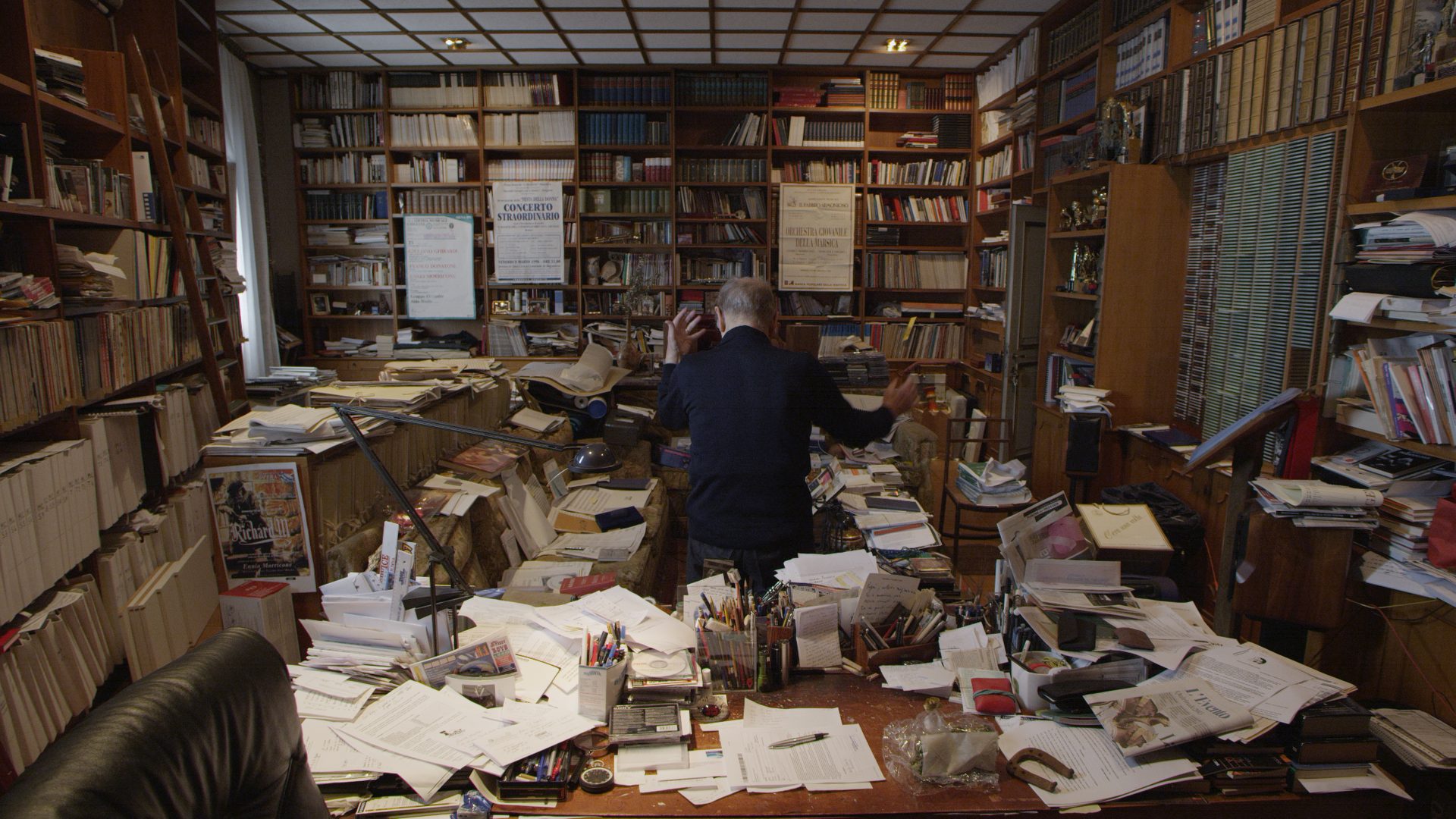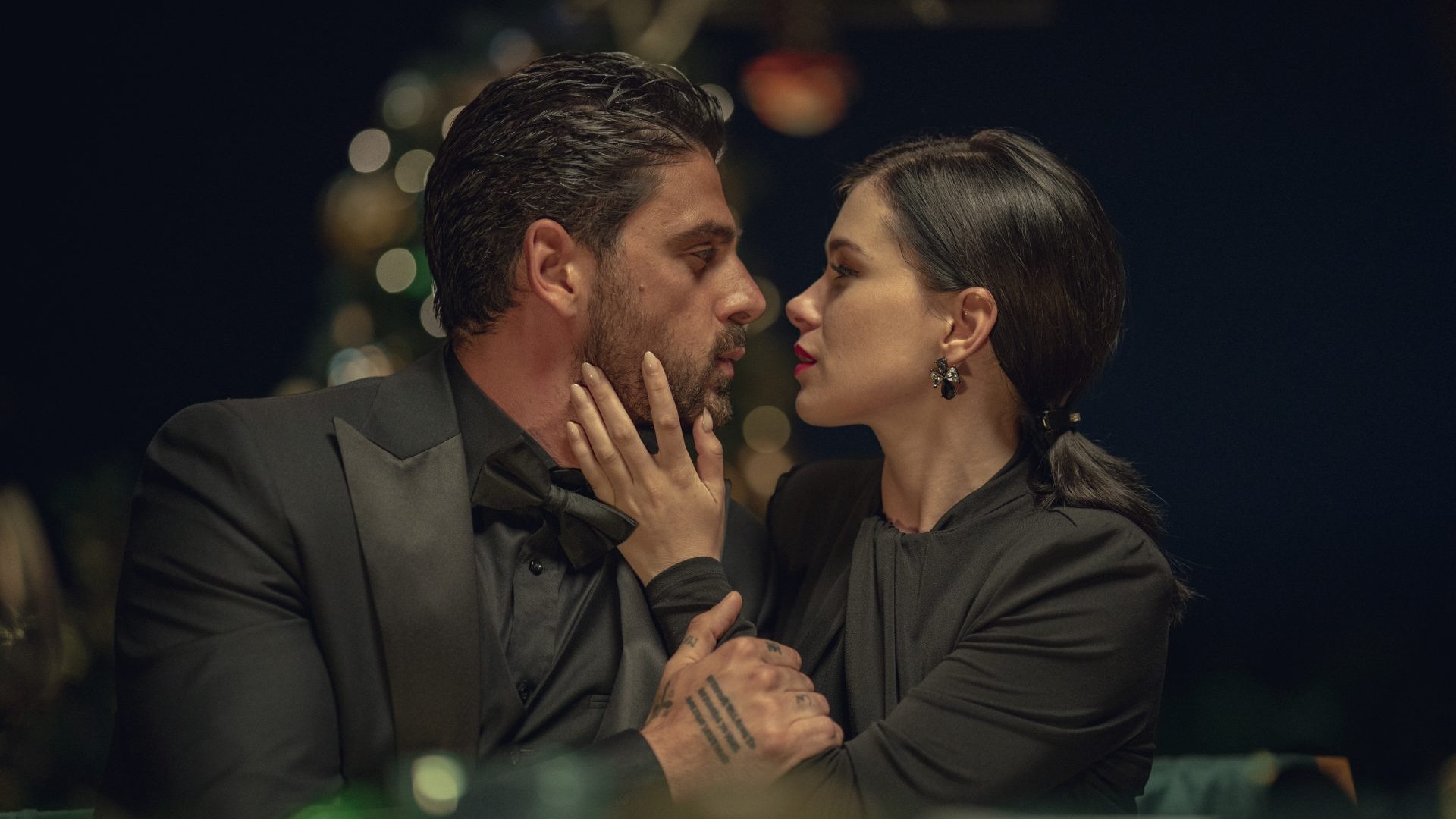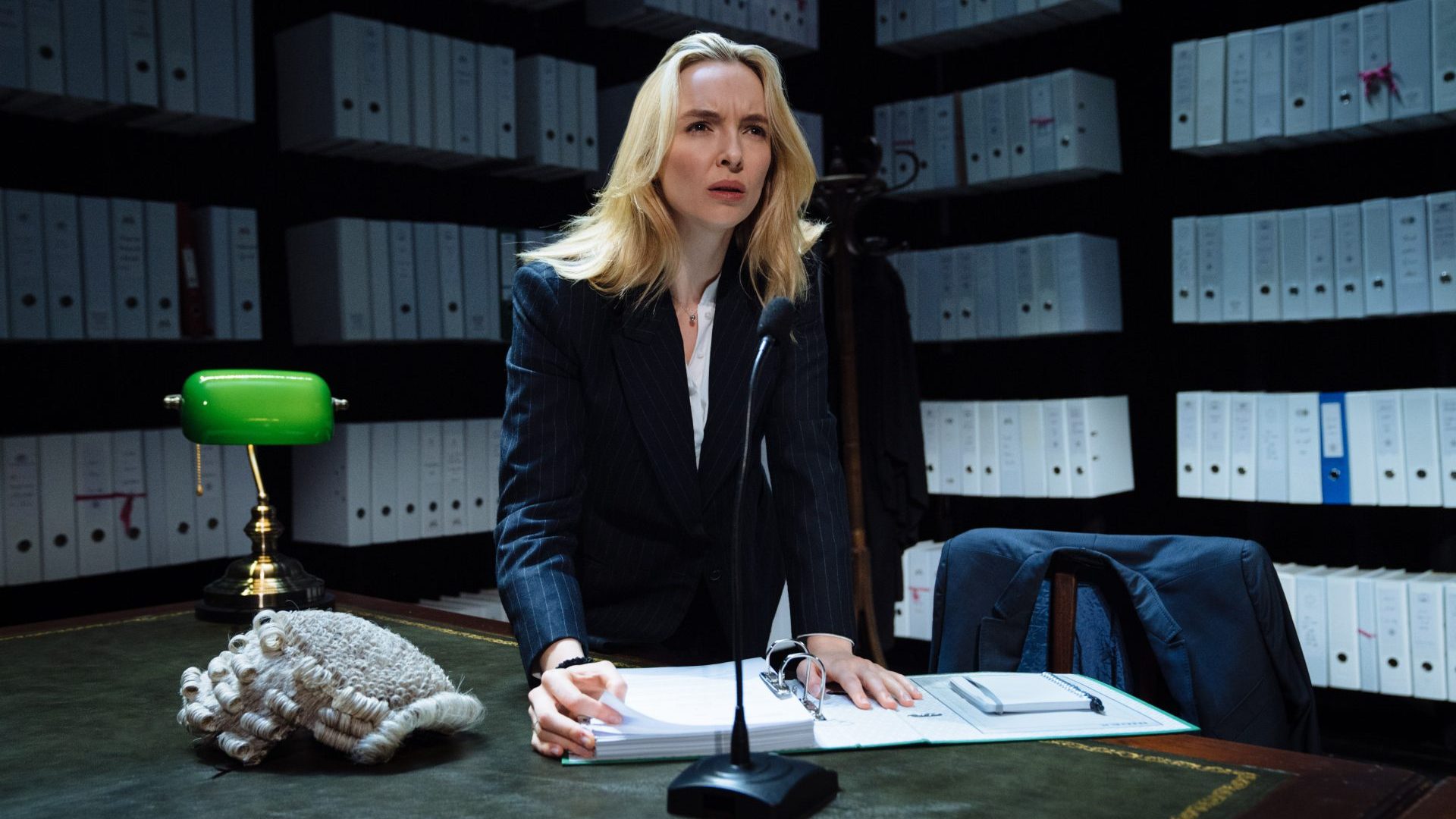With more than 500 film scores and sales of over 70 million records, Ennio
Morricone was a giant. Everyone in a new documentary about him – from
Bruce Springsteen and Clint Eastwood to The Mission director Roland Joffé,
Metallica’s guitarist and Quentin Tarantino – says so. Everyone except Morricone himself. He hated his own art.
It’s rather painful to watch: two and a half hours of sublime sounds, thrilling
clips and wizened talking heads, all punctuated by an elderly composer looking back with less than fondness on one of the great artistic careers.
Morricone died in July 2020 and this film, a standard-looking doc but with
unfettered access and amazing guests, is put together by one of his biggest
fans, the Italian film-maker Giuseppe Tornatore, best-known as the director
of Cinema Paradiso, for which Morricone was persuaded to write one of his most memorable scores. He was supposed to have retired from movies after failing to win the Oscar for The Mission in 1987 but, as happened quite often, he was lured back in.
Joffé was the man who made The Mission, starring Robert de Niro and Jeremy Irons. The film had won the Palme d’Or at Cannes and Morricone’s
amazing score, combining ethnic South American sounds, ecclesiastical arrangements and incantations, was clear favourite at the Academy Awards
the following February. But he lost out to Herbie Hancock for Round Midnight, in which the wonderful music is mostly composed of jazz standards. “It shouldn’t have even been in that category,” remarks Joffé now. “It really was a shock and I think Ennio was mortally offended. Although, it must be said, he was quite easily offended.”
Oliver Stone worked with him on the 1997 film U-Turn and, when the maestro delivered his first score to the director, Stone asked him “for something more along the lines of” the Spaghetti Western sounds of his
early successes. Horrified at being asked to go over old ground, Morricone U-turned out of LA and flew straight back to Italy.
“Oh you had to know how to work with Ennio,” recalls Joffé. “He certainly didn’t want to write The Mission. When he first saw the film, we showed it to him without music and I found him slumped in his seat, down so low that I thought he’d actually gotten up and left half-way through. He was crying and told me it didn’t need any music, that he couldn’t add anything to it and anything he would write would ruin the film. And he just got in a car and left.”
Joffé’s experienced producer, David Puttnam, advised patience. “Sure enough, two weeks later my phone rang and it was Ennio,” Joffé tells me
from his house in Malta.
“‘Ai un piccolo idea’, he said, and he started singing the first few notes of what became Gabriel’s Oboe theme. Now, Ennio is a pretty bad singer but I could tell even from that there was something special coming. He’d found the soul of the film.”
Joffé is right. Time and again in the documentary, Morricone recalls his moments of inspiration for what have become unforgettably gorgeous film themes and scores, telling the camera “duh – di –daa – duh– dah” in a voice that’s pretty much out of tune, these future classics of cinema scarcely recognisable. There’s something oddly comforting to know that a man who made so much beautiful music can hardly carry a tune in the shower.
“But there was always magic there,” says Joffé. “Watching him compose, it
was like watching an athlete, the speed and the intensity quite remarkable.
His music could infuse the film with the most amazing spirit. I like to say
that on The Mission, Ennio created a spiritual rope that tied together the images I’d shot.”
Tornatore’s documentary is long but extremely thorough. We don’t learn
much about the private life of Morricone. His childhood is covered briefly, the son of a jobbing trumpet player, he wanted to be a doctor but his father made him study the trumpet “so he would always be able to eat”.
Music awakened something in the young Ennio and it was clear he had a
gift beyond that of his father, but the influence of the trumpet is clear
throughout his work.
He was sent to study under the strict tutelage of composer Goffredo Petrassi, a relationship that would have great influence on him, not always positive.
Morricone’s career seems to have flourished in a non-classical realm, one that he struggled all his life to prove to his peers and tutor at the conservatory. Perhaps it is Italian guilt, but there’s something very painful in watching the elderly Morricone look back on his career and say things such as: “I’m a traitor to the
purity of the composer.”
There’s a clip from a TV interview in black and white in which the venerable Petrassi himself is asked for his thoughts on music written for the cinema. He calls it “prostitution”. Petrassi had only one miserable experience of working for films, being hired and then fired from John Huston’s Rome-shot production of The Bible. The man they got to replace him? Ennio Morricone, who felt terrible about replacing his teacher and could not bring himself to complete the job.
Morricone’s commercial career was booming in the early 1960s, arranging
pop hits such as the enduring classic Il Mondo for Jimmy Fontana. But it was an old school friend who really lured him into the world of film music, a kid called Sergio Leone who wanted to find new ways to shoot his favourite genre, the Western. Leone allowed Morricone full experimentation on A Fistful of Dollars in 1964, encouraging bold use of sound and instrumentation, employing whips, anvils, bells and, of course, the famous
whistle by Alessandro Alessandroni. Sounds fondly recalled by Clint Eastwood with wry humour. “That music helped dramatise me,” he says, “which is hard to do…”
The collaborations between Leone and Morricone are among the most
distinctive in all cinema, the twang of guitar strings, the mariachi trumpet
trills, the coyote howl of The Good, The Bad and the Ugly, flourishing to full
beauty in the score of Once Upon A Time in the West (1968), in which the music practically tells the story during an almost dialogue-free, 20-minute
prologue. Their skills combined again, years later in the brilliant Once Upon A Time in America (1984). He scored 21 films in 1969, figures more comparable to a leading football striker than a composer.
“He could come up with a score so fast it was like he was writing a letter,” says Leone. The late Bernardo Bertolucci, for whose film 1900 Morricone wrote the score, says that: “Ennio moves inside the music and his talent gushes out, he can’t help it,” while the composer Hans Zimmer claims it’s impossible to understand or study how Morricone achieves his emotional impact. “You have to abandon critical, analytical thought and just let go,” he says.
The documentary carries on through work with Joan Baez, playing chess with Terrence Malick on Days of Heaven, through The Mission, on to The Untouchables for Brian De Palma, the final recognition of an Honorary Oscar
in 2006 and winning a real one for Quentin Tarantino’s The Hateful Eight
in 2016, occasions that appear to genuinely greatly move him.
I had the thrill of seeing the maestro in action once, conducting at the 2002
Taormina film festival in the open-air Teatro Antico, building up to his crescendos while Mount Etna gushed out sparks in the background – one of
the most amazing things I’ve ever witnessed.
Likewise, just weeks after his death aged 91 in July 2020, when I saw his son Andrea conduct an intimate yet socially distanced Roma Sinfonietta Orchestra at the pandemic-era Venice film festival, reprising Deborah’s Theme from Once Upon a Time in America and bringing the entire Sala
Grande to tears, as well as the TV audience watching live. It made Arrivederci Maestro the headlines in the Italian papers the next day.
There is concern throughout the film, and clearly throughout Morricone’s life, that these film scores and themes will not merit consideration alongside the greats of Chopin and Bach. The documentary features several contributions from the apparently much-esteemed “thinker and composer” Boris Porena, who seems to relish pouring scorn on his rival’s career and who can’t seem to come up with a decent word to say about him.
This need to be accepted and recognised by his classical peers haunted Morricone as much as it inspired him to a prolific work ethic in composing and conducting.
“He would always tell me his film work was secondary to his classical work,” says Joffé. “Time and again I would try to protest and I still can’t say I agree with him, but it obviously was his firm belief and I do sort of understand what he meant when he said it.”
One of Morricone’s most popular hits was Se Telefonando, written for Mina in 1966, a rhythmically dazzling piece of pop, with complicated brass arrangements and tonal progressions throughout, yet instantly hummable and catchy. The tune, one recognised by almost every Italian, came to him while he was in a queue at the post office, waiting to pay the gas bill.
I don’t suppose such modern mundanities ever happened to Bach, but then Morricone and the movies are a unique blend, a love at first sight marriage between image and sound. If cinema is, after all, the 20th century’s defining art form, then no other composer captured and explored the artistic tension between modernism and classicism, between the trivial and the sublime, that Morricone clearly found at the movies. I’m glad the two met. Bravo, Maestro.
Ennio is now in cinemas and on demand. Go to www.dogwoof.com for tickets and how to watch at home




